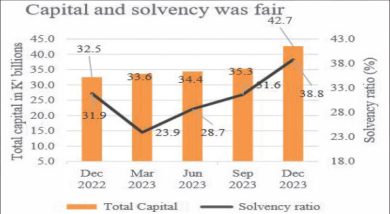Winners and losers in SA’s rand gain
The South African rand has in recent weeks extended gains against the kwacha, drawing praise from exporters while increasing costs for importers.
The rand has roughly surged by 18 percent against the local currency from K50 at the beginning of December 2017 to around K59 as of last Friday.
According to Bloomberg, the rand has strengthened against other currencies largely due to the optimism brought by the election of Cyril Ramaphosa as African National Congress (ANC) leader who has vowed to revive the struggling economy and stamp out corruption.

The rand gain will obviously have implications on Malawi’s economy as South Africa is one of the biggest trading partners with imports from the SA recorded at $361.275 million (about K264 billion) and exports at $54.722 (about K40 billion) as of November 2017, according to the National Statistical Office (NSO) and Malawi Investment and Trade Centre (Mitc).
In an interview last week, AHL Commodities Exchange (AHCX) general manager Davis Manyenje is worried that if the situation prolongs, it will reflect on import prices as traders will have to pay more for the same imports.
“Traders importing various items from South Africa will use a lot more kwacha than before to import the very same products and those with the same capital, will import less.
“Overall, the kwacha has been stable and I don’t think this gain will be reflected immediately in prices, but in the long-run importers will have to cough more while our exports will become a little more attractive to South Africa as the rand will translate to more kwacha,” he explained.
Smallholder Farmers Fertiliser Revolving Fund (SFFRFM) chief executive officer Andy Kalinde described the situation as ideal for them as they are now exporting agro chemicals and agricultural commodities to South Africa through their expansion drive.
“As part of our diversification, we help rural farmers looking for a market by buying and exporting the products to bring in foreign exchange and this development is good for us as it will help us to export more as our currency is on the weaker side,” he said.
Small and Medium Enterprise Association (Smea) president James Chiutsi said the sad reality is that the country mostly exports raw products; hence, it will not capitalise on exports.
“The gain of the rand will eventually lead to high production costs which will lead to less profits for businesses or they will push the cost to the consumers by adjusting prices upwards as businesses will spend more kwacha to buy goods from South Africa,” he said.




